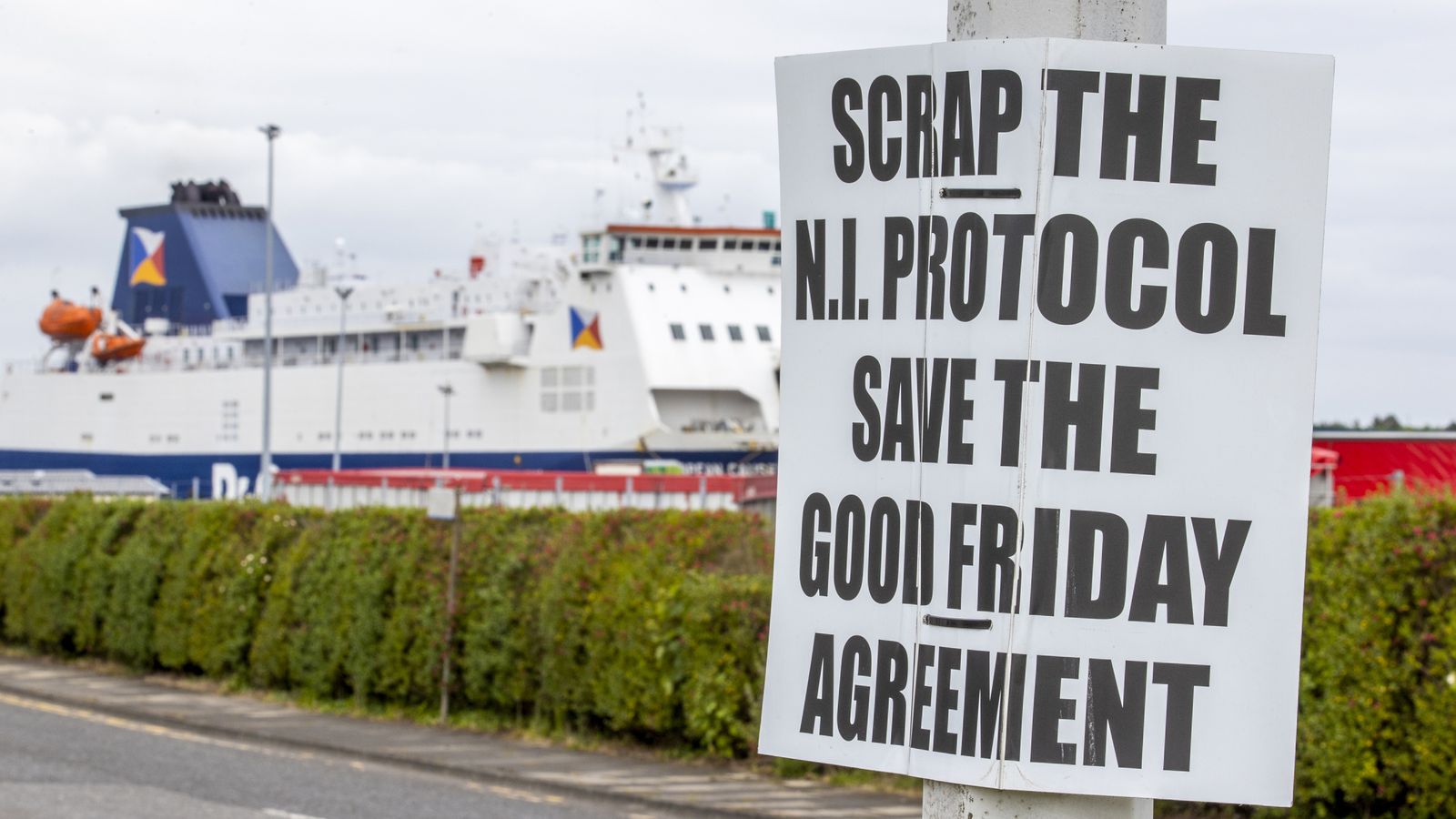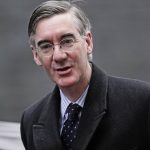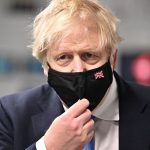There is an elephant in the room, but contenders for the Conservative Party leadership have ignored it in their televised debates.
Where exactly do Liz Truss and Rishi Sunak stand on the controversial bill designed to override the Northern Ireland Protocol?
To a large extent, they are speaking the same language regarding the plan to unilaterally scrap post-Brexit Irish Sea trade arrangements.
But those who oppose the protocol and those who want to see it retained are hitching their horses to two different wagons.
Politics Hub: Sunak accused of ‘mansplaining’ on TV debate
While they won’t comment publicly on what is a Tory contest, the Democratic Unionists have more confidence in Liz Truss.
Not for the first time, the Norfolk MP has turned 190 degrees and gone from voting Remain to embracing Brexit.
Truss pledges to expand Rwanda scheme to other countries as Sunak promises refugee cap
Rishi Sunak promises to tackle NHS backlog as Liz Truss pledges EU ‘red tape bonfire’
Beth Rigby on Rishi Sunak v Liz Truss.. plus an interview with Sir Keir Starmer
As foreign secretary, she introduced the Northern Ireland Protocol Bill, which the DUP had demanded as the price for power-sharing.
Launching her campaign to become prime minister, she spoke of drawing up the legislation “in the face of EU intransigence”.
Ms Truss rejected claims it breached international law, arguing that it upheld the Good Friday Agreement and protected the Union.
Rishi Sunak acknowledges challenges posed by the protocol, but says the government’s preference is a negotiated settlement with the EU.
He reportedly urged Boris Johnson and his former Brexit negotiator Lord Frost not to “blow up” talks with the EU.
Late last year, the Daily Telegraph reported he had raised concerns that escalating tensions could impact on the British economy.
The former chancellor did not vote on the contentious Northern Ireland Protocol Bill at its second reading in the Commons.
Mr Johnson’s government agreed the Northern Ireland Protocol to avoid a hard border on the island of Ireland.
It effectively left Northern Ireland in the European Union’s single market for goods, creating a trade border in the Irish Sea.
Many business leaders welcome Northern Ireland’s unique access to both the EU market and the GB market as an advantage.
But Unionists have refused to restore power-sharing government at Stormont, arguing that it compromises Northern Ireland’s place in the UK.
The candidates may not want to talk about it, but it will be one of the first challenges for the next occupant of Number 10.
Whatever choice they make – the protocol or power-sharing – will define their relationship with the European Union.






















